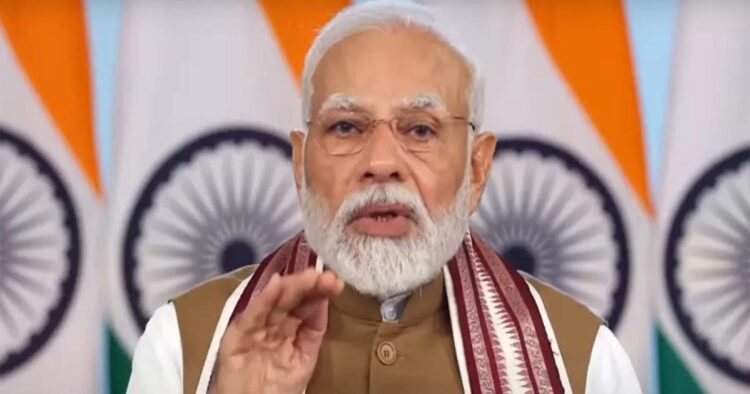Prime Minister Narendra Modi of Bharat has set forth an ambitious vision to reduce the country’s dependence on fossil fuels, emphasizing the need for sustainable energy solutions. Speaking at the inauguration of the second edition of India Energy Week 2024 in Goa, PM Modi highlighted the nation’s strides in renewable energy and environmental sustainability.
Under PM Modi’s leadership, Bharat has witnessed remarkable progress in the energy sector. The solar installed capacity has surged by over 20 times in the past decade, and ethanol blending has risen significantly from 1.5% to above 12%. Notably, India has already introduced a 20% blended fuel, with plans for widespread availability expected in the near future.
PM Modi underscored Bharat’s commitment to infrastructure development, aiming to meet the surging energy demand while ensuring affordability across the nation. Despite global factors, the prices of petrol and diesel have decreased in recent years, and Bharat has achieved 100% electricity coverage, providing power to millions of homes.
Acknowledging the escalating energy demand, PM Modi projected that Bharat’s demand would double to about 38 million barrels by 2045. As Bharat gears up to become the third-largest economy globally, energy diversification is paramount. Efforts are underway to increase the share of natural gas in the energy mix from 6% to 15%, with significant investments expected in the coming years.
In alignment with India’s waste-to-wealth management initiative, PM Modi revealed plans for the establishment of 5,000 compressed biogas plants. Despite being the third-biggest oil importer and consumer globally, Bharat is committed to reducing carbon emissions and transitioning towards environmentally conscious energy sources.
PM Modi announced a series of measures to promote green growth and renewable energy in the Interim Budget 2024-25. Notably, the government plans to provide rooftop solar to one crore families, enabling them to access up to 300 units of free electricity monthly. Additionally, Bharat aims to become a hub for hydrogen production and exports through its Hydrogen Mission.
Bharat has pledged ambitious targets at global climate summits, including COP26, committing to reach 500 GW of non-fossil electricity capacity, generating half of its energy requirements from renewables, and reducing emissions by 1 billion tonnes by 2030. Furthermore, Bharat aims to reduce the emissions intensity of GDP by 45% and achieve net-zero emissions by 2070.
In conclusion, PM Modi’s unveiling of Bharat’s energy vision underscores the nation’s commitment to sustainable development and environmental stewardship. With concerted efforts and innovative initiatives, Bharat is poised to emerge as a global leader in renewable energy and green growth.

















Comments